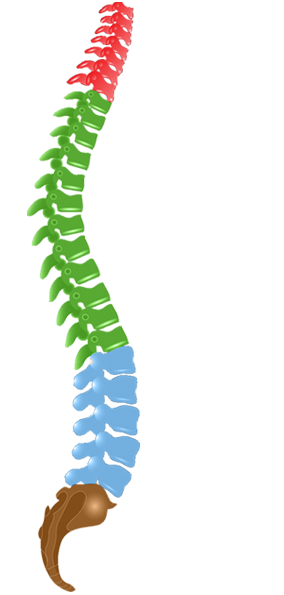What is an Adjustment ?
An adjustment is a precise and skilled manual movement applied to a body joint. This technique restores joint mobility, enhancing function.
When an adjustment is performed, a gas bubble is released, resulting in the audible popping sound you might recognize.
Extensive research supports chiropractic adjustment techniques. Complications are infrequent, and any side effects, like temporary soreness, tend to be minor. Your chiropractor is well-equipped to assess whether your condition responds to chiropractic care or if referral to another healthcare provider is advisable.
What is Chiropractic?
Chiropractic is a natural and holistic healthcare approach that focuses on the relationship between the spine and the nervous system.
Chiropractors believe that misalignments in the spine can disrupt the body’s natural ability to heal and function properly.
Through manual adjustments and other techniques, chiropractors aim to restore proper alignment to the spine, relieve pain, and promote overall well-being. Chiropractic care is known for its non-invasive nature and emphasis on the body’s innate ability to heal itself.
What Does a Chiropractor Do?
When Should I See a Chiropractor?
Doctors of chiropractic are extensively educated to address spinal, joint, muscle, and nervous system issues. Regular visits to a chiropractor can help identify issues before they develop into larger problems.

Possibles symptoms related to neck:
- Headaches/Migraines, high blood pressure, chronic tiredness, dizziness
- Sinus problems, eye trouble/vision difficulties, earache
- Pain in face nerves, acne, tinnitus
- Adenoids, hearing loss
- Hoarseness, sore throat, laryngitis
- Tonsillitis, croup, stiff neck, upper arm pains, whooping cough
- Diseases of the thyroid gland, colds, bursitis in the shoulder or elbow
If you have any of these problems, chiropractic may help. Book an appointment now!
Possible symptoms related to the upper back:
- Shoulder pains, neck cramps, lower arm/hand pains, ligament inflammations
- Functional heart conditions, chest conditions
- Bronchitis, influenza, pleurisy, pneumonia, cough, breathing difficulties, asthma
- Gall stones, Jaundice, Headaches on one side
- Disruption of the liver, anemia, fatigue, shingles, circulatory weakness, arthritis
- Stomach and digestion problems, heartburn, duodenal ulcers, hiccups
- Spleen problems, weakness in immune system, allergies, nettle rash
- Kidney problems, retaining of salt, chalked-up arteries, chronic tiredness
- Skin problems (acne, eczema, boils, raw skin, psoriasis)
- Small intestine problems, wind, rheumatism, infertility, erectile dysfunction
If you have any of these problems, chiropractic may help. Book an appointment now!
Possible symptoms related to the lower back:
- Problems with large intestine, blockages, diarrhea, constipation
- Problems with appendix, stomach cramps, hyper acidity, varicose veins
- Problems during pregnancy, menstruation pains, menopause problems
- Bladder pain, knee aches (often together with the bladder), impotence, bed-wetting
- Sciatica, lumbago, prostate trouble, painful or too frequent urination
- Circulation problems or swelling in legs and feet, cold feet, cramps in the calves
If you have any of these problems, chiropractic may help. Book an appointment now!
Possible symptoms related to the tailbone:
- Sciatica, abdominal problems, chronic constipation, pains in legs and feet
- Hemorrhoids, pain while sitting
If you have any of these problems, chiropractic may help. Book an appointment now!
Here are some of the most common reasons why more than 4 million Canadians visit a chiropractor each year:
- Back pain
- Neck pain
- Headache
- Shoulder pain
- Arm pain
- Hip pain
- Knee pain
- Ankle or foot pain
- Whiplash
- Strains and sprains from daily activities
- Repetitive strain injuries
- Work and sports-related injuries
- Injury prevention
- Arthritis
- Birth trauma for infants
- Pregnancy
- Restricted movement in the back, shoulders, neck, or limbs
- General health and well-being
Frequently Asked Questions
Yes. Chiropractic is widely acknowledged as a safe, non-invasive, and drug-free therapy for relieving headaches, neck pain, and back pain. While its safety record is impressive like any health intervention, there may be occasional adverse effects. Even common over-the-counter medications come with some level of risk.
After an adjustment, most patients experience immediate relief. However, some may encounter temporary pain, stiffness, or slight swelling. In certain cases, there could be momentary dizziness, local numbness, or fleeting radiating discomfort. Nonetheless, any adverse effects associated with spinal adjustments are typically minor and short-lived.
No. Chiropractors are legislated as primary care professionals across all Canadian provinces. This means that patients can consult them directly. However, chiropractors often work closely with medical doctors, many of whom refer to chiropractors when they believe chiropractic treatment will help alleviate a patient’s condition. Similarly, chiropractors frequently refer to medical doctors when necessary.
No. X-rays are used for diagnosis when needed after a patient’s history and physical exam. Chiropractors receive specialized training in using and understanding X-rays, which is recognized in all provinces, allowing them to use this tool for diagnosis.
Discs do not actually ‘slip’. Instead, they serve as cushion-like tissues situated between two vertebrae, functioning as shock absorbers for the spine. The center of the disc comprises a soft, fluid-like substance similar to jelly. When discs become damaged, tears can occur, leading to the leakage of the soft center, which then presses against nerves. This condition is commonly referred to as a ruptured or herniated disc, which can indeed be quite painful.
While it’s important to note that results cannot be guaranteed, many patients have opted for chiropractic care to address their disc-related issues and have successfully avoided unnecessary surgeries or reliance on pain medication. In fact, chiropractic adjustments are considered safer alternatives compared to back surgeries, muscle relaxers, and even aspirin.
Discs do not ‘slip,’ however, if damaged they can leak or rupture.
- Enhanced movement in the neck, shoulders, back, and torso
- Improved posture
- Relief from headaches, neck pain, and back pain
- Prevention of work-related muscle and joint injuries
- Improved athletic performance
- Increased flexibility and range of motion
- Alleviation of pregnancy-related backache
- Correction of gait and foot issues
Chiropractors specialize in restoring proper motion to joints that are not functioning correctly, which plays a crucial role in improving spinal biomechanics and enhancing nerve system function. This process typically commences with a comprehensive case history.
Your case history is vital, as it provides essential information about your health background, including details like surgeries, accidents, the onset of your condition, and other factors that led you to seek care in our office.
Following a thorough review of your case history, and a discussion about your specific health concerns, our doctors will conduct a comprehensive orthopedic, neurological, and chiropractic examination. In some cases, X-rays may be taken to identify any structural and functional issues.
Once the examination is complete, your chiropractor will present the findings and develop a treatment plan tailored to your needs. To track your progress, periodic examinations and follow-ups will be scheduled as necessary
Many extended healthcare plans cover chiropractic services, please verify with your provider if this included in your plan and the total amount ($) available per year. We do not provide direct billing, patients pay at the time of service and statements will be provided for you to submit to you insurance company for reimbursement.
Many people visit a chiropractor thinking they have a pinched nerve, but true pinched nerves are not very common. Research indicates that only about 10%-15% of spine problems are genuinely caused by bones pressing on nerves. A real pinched nerve can cause sensations like numbness, tingling, or pins and needles. If a bone is indeed pressing on a nerve, it’s a serious issue that requires prompt attention.
Typically, there are other reasons for symptoms such as numbness or a burning sensation. If you are experiencing numbness, please schedule an appointment for a thorough check-up.
Yes. Newborns often get checked for spinal issues due to birth trauma. Childhood activities can lead to spine problems as well. Health complaints in childhood, often labeled as “growing pains,” can be linked to the spine. Regular chiropractic check-ups can catch these issues and prevent future problems in adulthood.
Chiropractic adjustments suit kids and have benefits for scoliosis and common childhood health problems.
No. Chiropractic care is increasingly sought out by older individuals due to concerns about medication and its side effects. Natural and safe, chiropractic care is gaining popularity.
Enhancing spinal function can boost mobility, energy, endurance, and appetite. Patients often experience relief from arthritis and other chronic issues linked to aging.
The adjusting technique employed by your doctor will be adapted for comfort and best outcomes.
As we age, the simplicity and efficacy of chiropractic care become clearer.
Chiropractic care benefits all ages, enhancing mobility and vitality.
Addressing spinal issues that might have originated in childhood may necessitate ongoing supportive care for optimal spinal function. These persistent problems often involve muscle weakness, soft tissue damage, and degenerative spine changes.
Many patients discover that regular chiropractic check-ups help maintain their well-being. Active individuals, those with demanding jobs, or those aiming for peak performance often benefit from preventive visits to sustain good health.
Certain patients only seek chiropractic care when pain becomes unbearable. However, this approach of ‘crisis management’ tends to be more time-consuming and costly in the long term.
The duration of your chiropractic care is your choice.
Just like dental hygiene, exercise, and a balanced diet, periodic chiropractic check-ups contribute to a healthy lifestyle.
